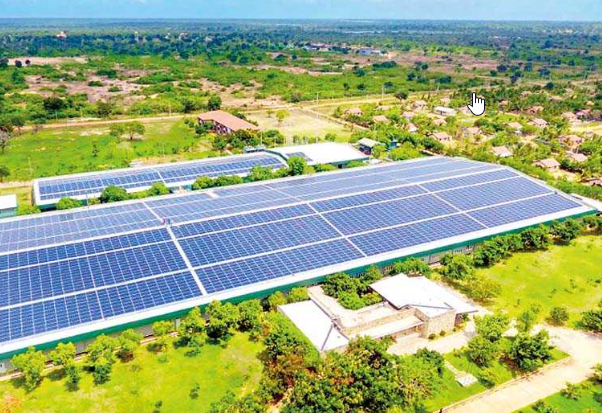New Delhi [India]: Sri Lanka’s Foreign Minister Vijitha Herath emphasized that Sri Lanka has the potential to produce surplus energy and could export it to India and neighboring countries if new energy projects are initiated. Speaking at the India Foundation Programme on Tuesday, Herath urged Indian companies to participate in the development of Sri Lanka’s energy sector.
Key Highlights:
- Surplus Energy Potential: Herath stated that Sri Lanka has wind and solar power potential and could become an energy exporter with the successful implementation of new energy projects. He invited Indian companies to contribute to energy development in Sri Lanka.
- Ongoing Projects & Proposals: While some energy projects are already underway, discussions are ongoing regarding others, including those in Sampur, Mannar, and Jaffna. Herath stressed the importance of finalizing these projects to unlock Sri Lanka’s potential as an energy exporter.
- Bilateral Ties with India: Herath highlighted the strong bilateral ties between India and Sri Lanka, which are founded on historical, cultural, religious, and civilizational bonds. He noted that Sri Lanka’s heritage is closely linked to India, with influences from Buddhism and Hinduism shaping the island’s culture.
- Sri Lankan President’s Visit: The current visit of Sri Lankan President Anura Kumara Dissanayake to India symbolizes the close-knit relationship between the two countries. President Dissanayake’s visit has been significant, marking his first foreign trip since taking office in September.
- Energy Cooperation with India: In a meeting between Prime Minister Narendra Modi and President Dissanayake, the two leaders agreed to expand energy cooperation, particularly through the solar power project in Sampur. Other projects, including the supply of LNG from India to Sri Lanka, the high-capacity power grid interconnection, and joint development of offshore wind power in the Palk Straits, were also discussed.
- Trincomalee Development: Both leaders agreed to support the development of Trincomalee as a regional energy and industrial hub, with cooperation on the Trincomalee Tank Farms to enhance energy infrastructure.
Conclusion:
Sri Lanka’s ambition to become an energy exporter in the region, coupled with its ongoing efforts to bolster energy security, presents opportunities for India-Sri Lanka energy collaboration. The ongoing projects, particularly in the renewable energy sector, are poised to enhance the economic and strategic ties between the two nations. With mutual support in energy development, both countries aim to achieve greater energy security and sustainability for their populations.


